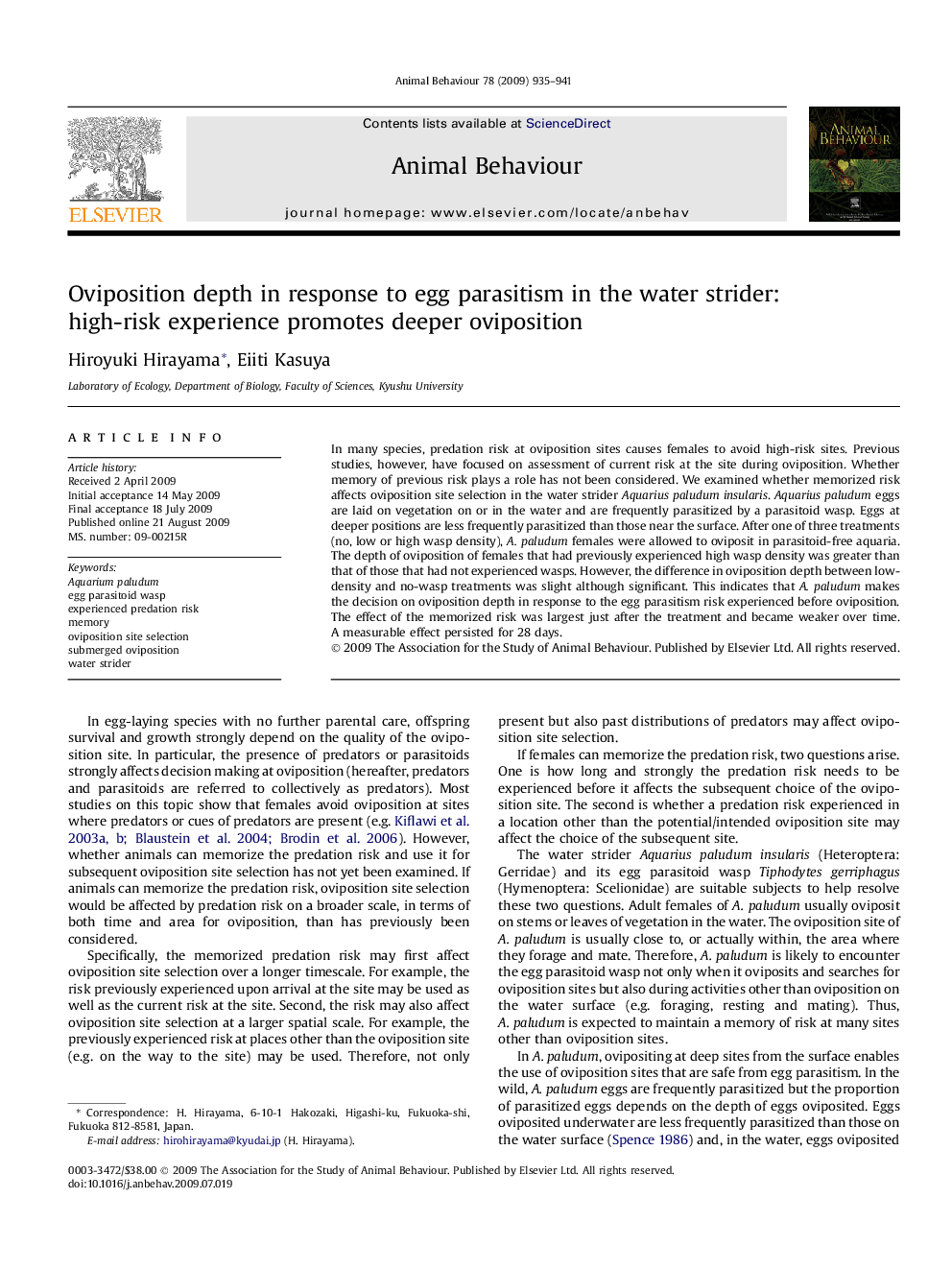| Article ID | Journal | Published Year | Pages | File Type |
|---|---|---|---|---|
| 2417864 | Animal Behaviour | 2009 | 7 Pages |
In many species, predation risk at oviposition sites causes females to avoid high-risk sites. Previous studies, however, have focused on assessment of current risk at the site during oviposition. Whether memory of previous risk plays a role has not been considered. We examined whether memorized risk affects oviposition site selection in the water strider Aquarius paludum insularis. Aquarius paludum eggs are laid on vegetation on or in the water and are frequently parasitized by a parasitoid wasp. Eggs at deeper positions are less frequently parasitized than those near the surface. After one of three treatments (no, low or high wasp density), A. paludum females were allowed to oviposit in parasitoid-free aquaria. The depth of oviposition of females that had previously experienced high wasp density was greater than that of those that had not experienced wasps. However, the difference in oviposition depth between low-density and no-wasp treatments was slight although significant. This indicates that A. paludum makes the decision on oviposition depth in response to the egg parasitism risk experienced before oviposition. The effect of the memorized risk was largest just after the treatment and became weaker over time. A measurable effect persisted for 28 days.
